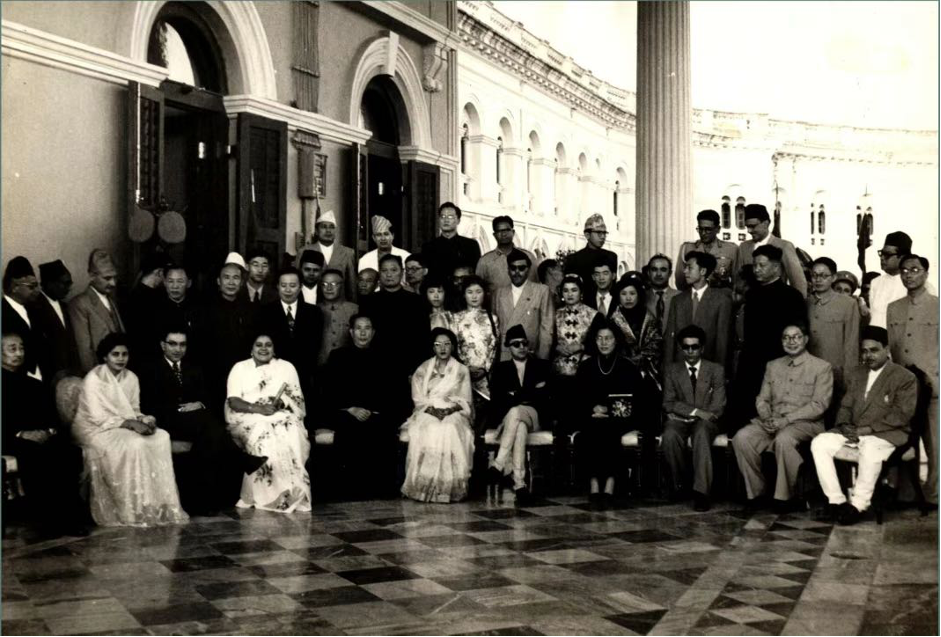Zhou Jianren 周建人 is a biologist who is mostly known for being a prominent figure in social activism. He’s also the third brother of one of China’s most influential writers and intellectuals Lu Xun 鲁迅. Zhou Jianren has held significant positions such as Deputy Minister of the Central Ministry of Higher Education, Vice-Chairman of the National Committee of Chinese People’s Political Consultative Conference (CPPCC), and Vice-Chairman of the Standing Committee of National People’s Congress (NPC).
He had a lesser-known title of being the founding President of the China - Nepal Friendship Association.
On Septemeber 28, 1956, the China-Nepal Friendship Association 中国尼泊尔友好协会 was established in Beijing during Nepali Prime Minister Tanka Prasad Acharya’s visit. This was the first official visit by the Nepali Prime Minister after the establishment of Nepal-China diplomatic relations in 1955.
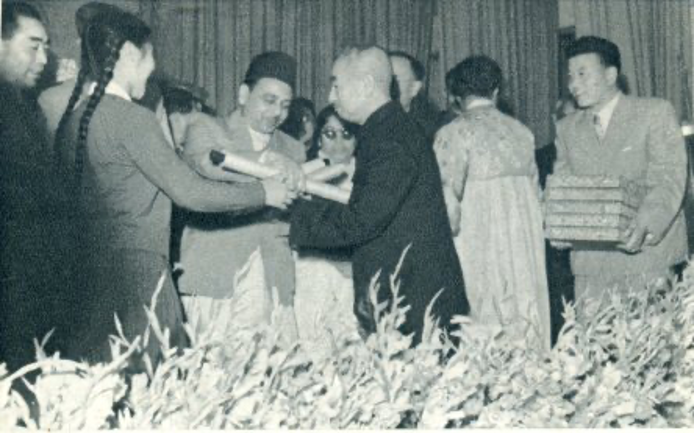
A year later, in 1957, Zhou Jianren, as the deputy lead of the Chinese cultural delegation, accompanied the head of the delegation Chu Tunan1, President of the Foreign Culture Association, to Nepal.
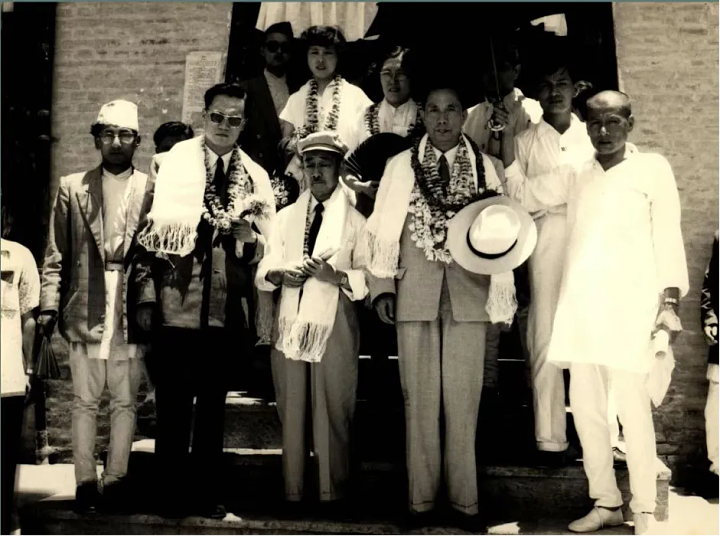
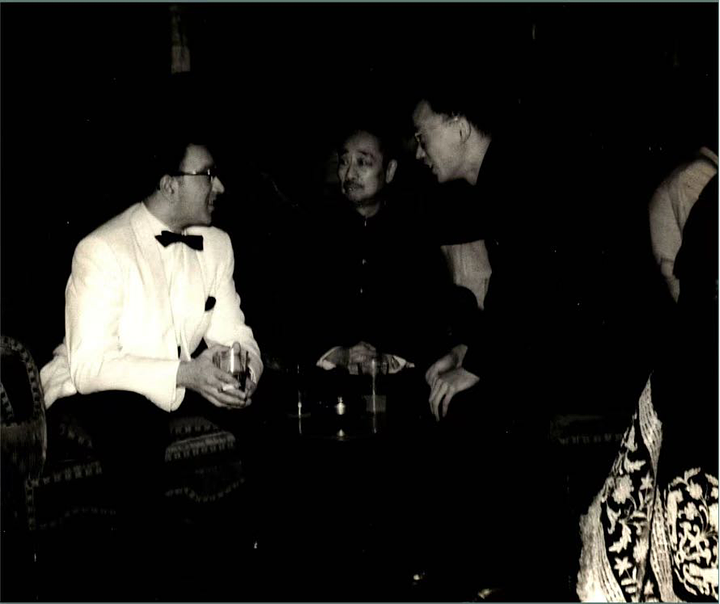
In March of 1960, Nepali PM B.P. Koirala visited Beijing. In 15th March, Zhou Jianren, held a grand reception to welcome the Nepali Prime Minister Koirala and his wife and the visiting Nepali delegation.
The Nepali delegation included Minister of Works and Transport Singh, Minister of Home Affairs and Justice Upadhyaya, Secretary of External Affairs Tapu, Secretary of Commerce and Industry Shukla, Major General Rana, Senate Member Jyoti, and Prime Minister's Private Secretary Dixit, all attended the reception2.
B.P. Koirala:
I believe that we must maintain and develop the traditional friendship between Nepal and China today and tomorrow. By developing traditional friendship and through mutual assistance and cooperation among Asian countries, peace in Asia can be guaranteed.
Zhou Jianren:
“We are very happy that since the establishment of diplomatic relations between the two countries, the traditional friendly relations between the two countries have not only been restored, but also have achieved new development on the basis of the Five Principles of Peaceful Coexistence.”
“Zhou Jianren said that the Chinese people admire the great efforts made by the government and people of Nepal in safeguarding national interests and developing the national economy, and are excited about their achievements in this regard. The Kingdom of Nepal has always pursued a policy of peace and neutrality in international affairs. The Chinese people welcome and fully support the wise foreign policy of the Nepalese government.”
The reception was attended by Premier Zhou Enlai, Vice Premier Chen Yi and his wife, Vice Premier Xi Zhongxun3, Vice Chairmen Shen Junru and Guo Moruo, Vice Foreign Ministers Zhang Hanfu and Luo Guibo, and Chinese Ambassador to Nepal Pan Zili.
The reception was held at the Cultural Palace of Nationalities. After the reception, the distinguished guests also visited the "Exhibition of National Work in the Past Ten Years" set up there.
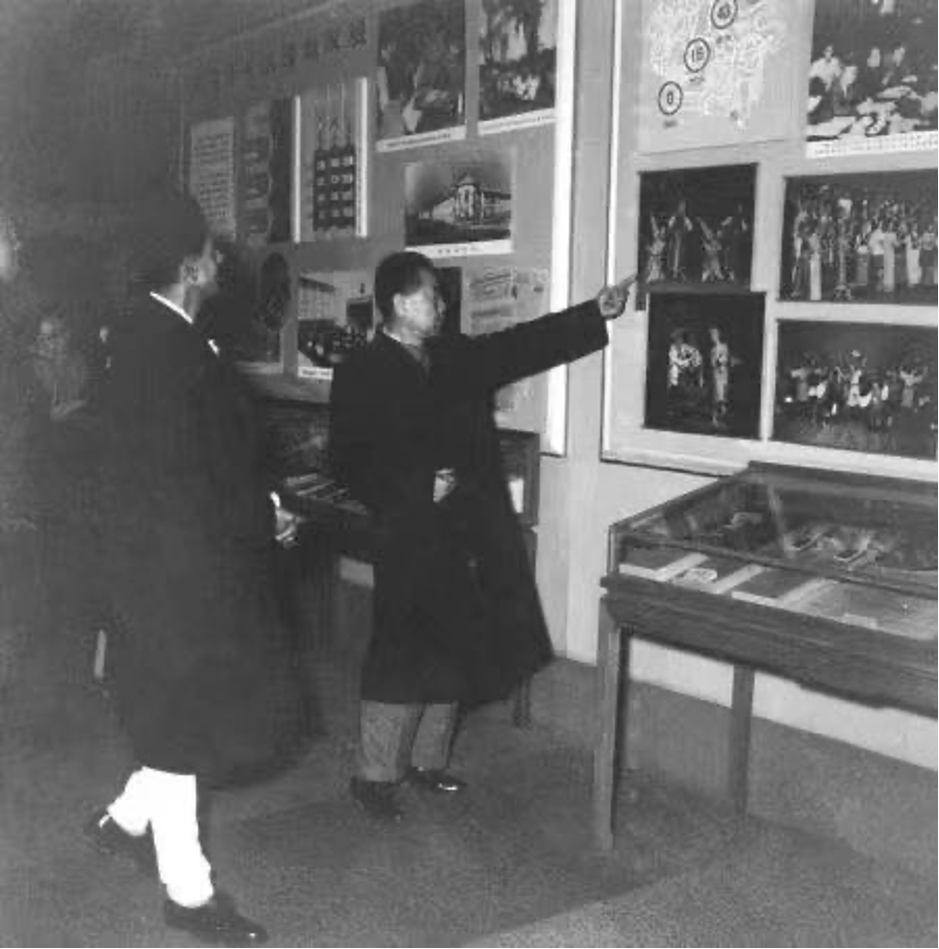
** We do not possess enough information about the China - Nepal Friendship Association and would invite our readers or any keen enthusiasts to share their knowledge (any archives like photos, or historical evidence) on this (lost?) institution. Feel free to email us if you do so.**
** The references used for this article:
Chu Tunan (August 18, 1899 - April 11, 1994) was born in Wenshan, Yunnan Province. He was a professor at Jinan University, Yunnan University and Shanghai Law School. After the founding of New China, he successively served as Professor of Beijing Normal University, director of the Southwest Culture and Education Committee, president of the Foreign Culture Association, and chairman of the Central Committee of the Democratic League.
This is exactly as per translation and we’re not sure of the full names of the representatives. If anyone can figure out the full names, please let us know.
Xi Zhongxun is the father of the current President of China Xi Jinping.




